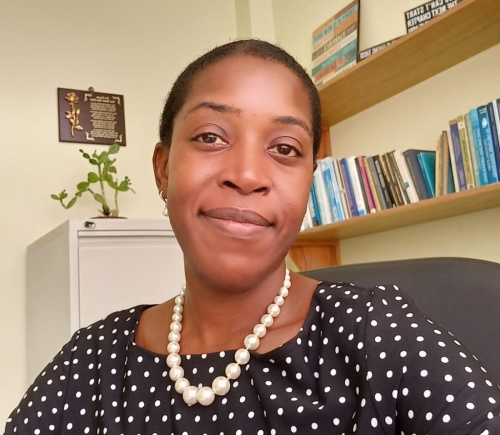Consultant Psychiatrist Affirms That Suicidal Recovery is Possible
By: , October 10, 2025The Full Story
Consultant Psychiatrist at Bellevue Hospital in Kingston, Dr. Bridget Opiavbe, is reminding the public that individuals struggling with suicidal thoughts can receive effective treatment and that recovery is possible.
She further emphasises that seeking help for suicidal ideation – defined as thoughts of death or suicide, or suicidal intent, which involves a desire or plan to act on those thoughts, is not a sign of weakness.
Rather, it reflects a state of deep mental distress that warrants timely, professional support.
“I want to say that treatment and recovery are absolutely possible. There are many people who once felt hopeless, and who later described finding new purpose and joy. So, it’s important that persons know that they are not alone, that help is available and that the help absolutely works,” Dr. Opiavbe told JIS News.

The reminder comes as part of Mental Health Awareness Week, observed from October 5 to 12, which includes the global recognition of World Mental Health Day on October 10.
There have been several recent suspected cases of suicide locally, with the Jamaica Constabulary Force (JCF) reporting 44 confirmed incidents between January and September 2025.
Against this background, Dr. Opiavbe highlighted that one of the leading contributors to suicide in Jamaica is untreated or poorly managed mental illness – particularly depression.
She noted that other contributing factors include psychosocial stressors such as economic hardship, unemployment, exposure to violence, breakdowns in relationships, and substance abuse.
The mental health professional pointed out that there are warning signs that may indicate a person is experiencing suicidal thoughts.
“Behaviourally, we can look out for social withdrawal. For example, a person is usually active in their youth choir [and], all of a sudden, they decide they don’t want to do that anymore, or they are not interacting with friends. Another is giving away possessions, and sudden changes in sleep or appetite,” she informed.
Dr. Opiavbe added that direct or indirect statements such as “I can’t go on”, “everyone will be better off without me”, or “I’m a burden to everybody” are verbal red flags that should never be ignored.
She further noted that emotional cues, such as expressions of hopelessness, overwhelming guilt, or an unexpected sense of calm following intense distress – may signal a decision to act.
Dr. Opiavbe pointed out that warning signs of suicidal behaviour can vary across age groups.
“For example, in adolescence, irritability, defiance, and risk-taking may be signs of some underlying distress. Older adults tend to have more physical complaints, isolation or talking about being a burden,” she informed, adding that clinicians must interpret the signs in a developmental context.
Dr. Opiavbe advised that family members have a vital role to play in suicide prevention by addressing noticeable changes in behaviour with direct yet empathetic communication.
“You can gently approach a person and say, ‘I notice you seem a bit down lately; I’m really concerned about you and sometimes when people are feeling this way, they think about ending their life’. So you can… create that kind of backdrop, and then segue into asking them, ‘Have you been having thoughts like that?’ It’s important to listen without judgment and validate your pain,” she stated.
Meanwhile, the psychiatrist noted that designating specific mental health observances is an effective strategy for addressing mental health challenges and strengthening suicide-prevention efforts.
These designated days are typically anchored by educational initiatives and awareness-raising activities that promote understanding, reduce stigma, and encourage help-seeking behaviours.
“It helps to educate the public about mental health issues, and that is one of the ways we are going to help reduce the stigma. The more people know about something, the less likely of a stigma it may be. It helps us to normalise the conversation, it encourages dialogue, it encourages people to seek help early and to know that there is help,” Dr. Opiavbe maintained.
For support, the Ministry of Health and Wellness has established a dedicated Mental Health and Suicide Prevention helpline at 888-NEW-LIFE, (888-639-5433).
Individuals between the ages of 16 and 24 can also access support through the U-Matter Chatline by texting “SUPPORT” to 876-838-4897.
The service is additionally available via Instagram and Facebook Messenger @ureportjamaica.
Individuals experiencing a mental health crisis are encouraged to seek immediate assistance at Bellevue Hospital or any general hospital emergency department.


